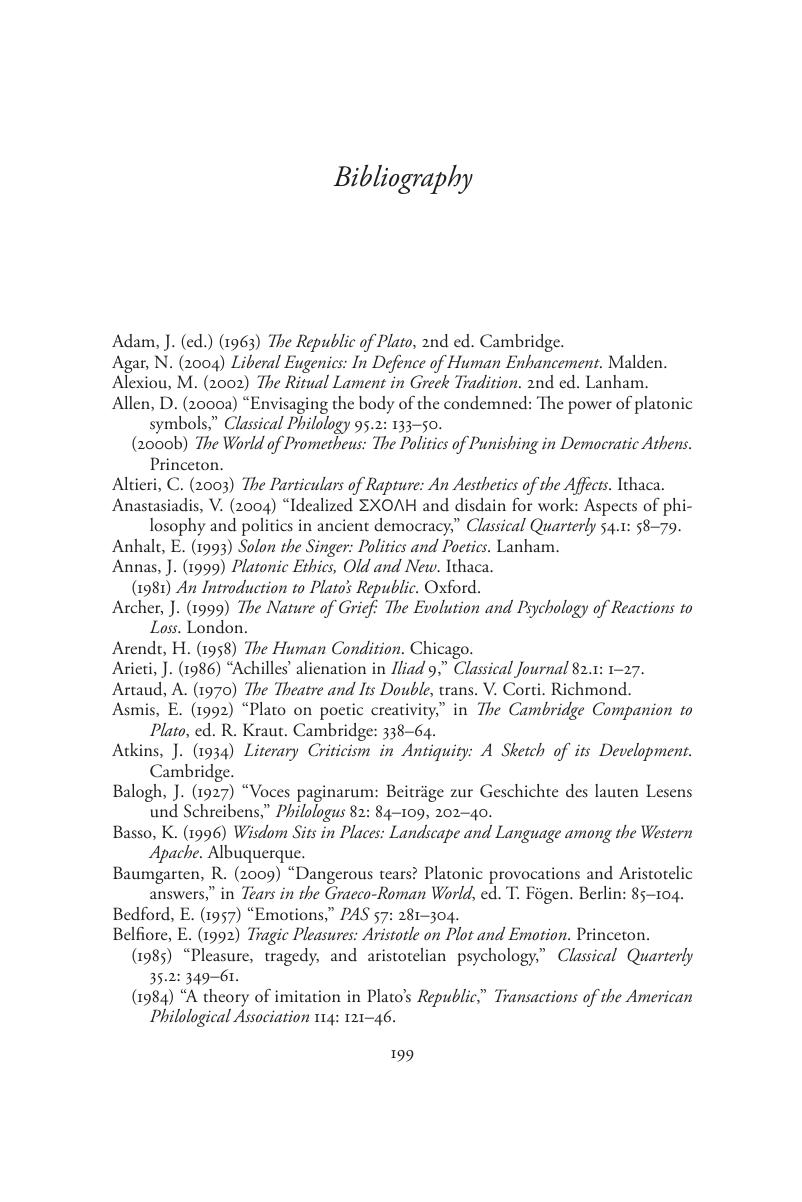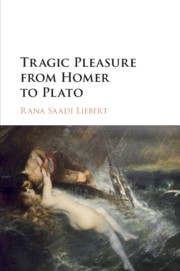Book contents
- Tragic Pleasure from Homer to Plato
- Tragic Pleasure from Homer to Plato
- Copyright page
- Contents
- Acknowledgments
- Notes on the Text
- Introduction: The Pleasure of Tragedy
- 1 The Taste of Archaic Poetry
- 2 Emotional Satisfaction in Archaic Poetry
- 3 Tragic Pleasure in Plato’s Republic
- Epilogue
- Bibliography
- Index
- References
Bibliography
Published online by Cambridge University Press: 01 June 2017
- Tragic Pleasure from Homer to Plato
- Tragic Pleasure from Homer to Plato
- Copyright page
- Contents
- Acknowledgments
- Notes on the Text
- Introduction: The Pleasure of Tragedy
- 1 The Taste of Archaic Poetry
- 2 Emotional Satisfaction in Archaic Poetry
- 3 Tragic Pleasure in Plato’s Republic
- Epilogue
- Bibliography
- Index
- References
Summary

- Type
- Chapter
- Information
- Tragic Pleasure from Homer to Plato , pp. 199 - 214Publisher: Cambridge University PressPrint publication year: 2017



